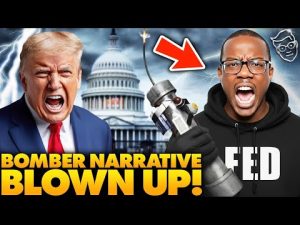**Kennedy’s Controversial Confirmation Hearing: A Showdown Over Pharma and Ethics**
In the world of politics, few things stir up a hornet’s nest quite like a confirmation hearing. Recently, Robert F. Kennedy Jr.’s nomination for Secretary of Health and Human Services (HHS) turned into a dramatic exchange that seemed to combine elements of a courtroom drama and a high-stakes poker game. Amid accusations of conflicts of interest and the influence of big pharma, the attention turned not only to Kennedy’s past but to the ethical implications of his potential future.
During the hearing, Senator Elizabeth Warren grilled Kennedy about his ties to the pharmaceutical industry and his billion-dollar advocacy efforts. It seemed like a scene straight out of a thriller, with Kennedy caught between expressing his commitment to health reform and defending his past involvement with lawsuits against vaccine manufacturers. The Senator’s questions revolved around whether Kennedy could promise not to accept payments from pharmaceutical companies or engage in litigation against them once confirmed. After earning a cool $2.5 million over the past two years for lawsuits against vaccine makers, Kennedy’s finances took center stage.
Warren’s probing revealed a contentious underbelly of Kennedy’s nomination—a spotlight on the so-called “revolving door” between government and industry. She pressed him to clarify whether as Secretary of HHS, he could influence the direction of the vaccine industry for personal profit. Accusations flew like confetti; if Kennedy were to hold the position, could he clean up corruption without creating more? It was clear that the stakes were high—not just for Kennedy’s career but for public health policies that could affect millions of families across the nation.
Many viewers could feel the tension rising, as Kennedy defended his position while attempting to assure both the Senators and the public that his intentions were pure. Humor and personality were noticeably absent during Warren’s serious inquiries; however, Kennedy attempted to balance the scales by insisting that his focus was on good science—not profit. No matter how you slice it, the arguments brought forward exposed not just Kennedy’s connections, but broader issues about accountability and ethical governance in health policy.
As the hearing wore on, the discussion shifted to the sensitive topic of medical history, with allegations of Kennedy’s alleged role in vaccine misinformation that contributed to a drop in vaccination rates during a measles outbreak in Samoa. The tragic tale of children falling ill after a botched vaccine and later dying became a pivotal moment in the discussion. With accusations flying about his potential influence on public health and child safety, Kennedy remained steadfast in rejecting any connection between his actions and the subsequent tragedies.
Though Kennedy pointedly refused to take personal responsibility for the fallout in Samoa, the bickering left many asking whether America’s health policies could withstand such high-profile conflicts. Questions remain about Kennedy’s ability to effectively navigate the intense landscape of public health without the shadow of potential profit entangling his decisions. With broader implications for vaccine trust and medical ethics at play, the confirmation hearing seemed to reach beyond the immediate inquiry—touching a raw nerve of public concern in a nation grappling with both health strategies and trust in government.
As the dust settles from this riveting confirmation process, one thing’s for certain: Kennedy’s journey is just beginning. Whether he can quell public anxiety about his past, hold to ethical standards, and tackle the very real issues surrounding vaccine hesitancy remains to be seen. Amid the fervor of political theater, the American public patiently watches, perhaps popcorn in hand, waiting to see how this drama unfolds. Will Kennedy rise to the occasion, or will his past come back to haunt him? Only time can tell, and with it, the future of health policy in America hangs in the balance.







